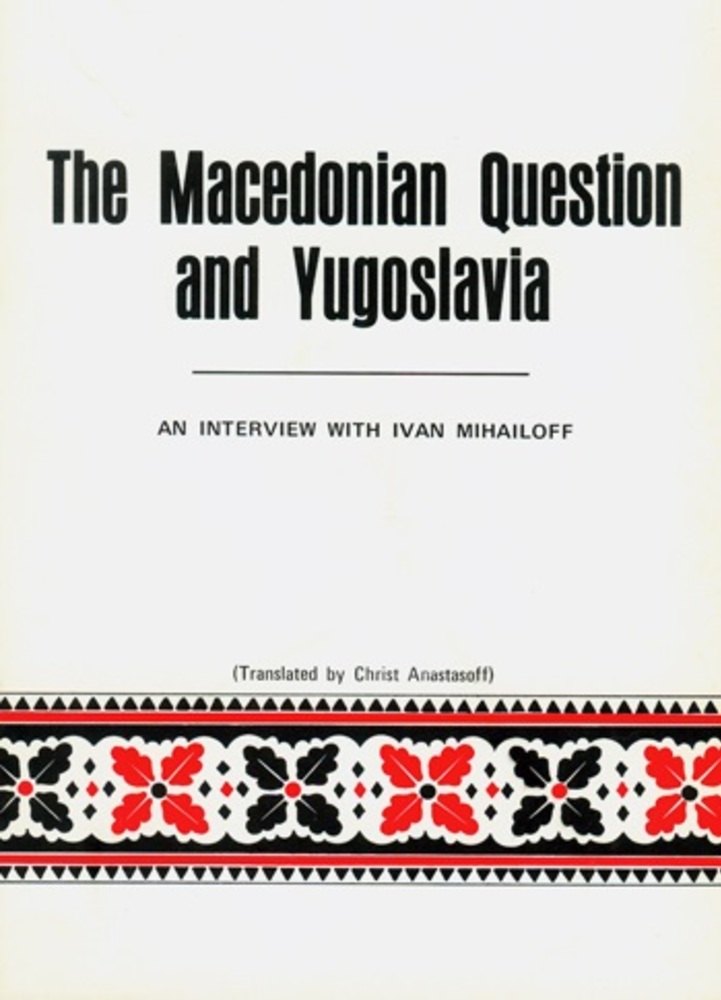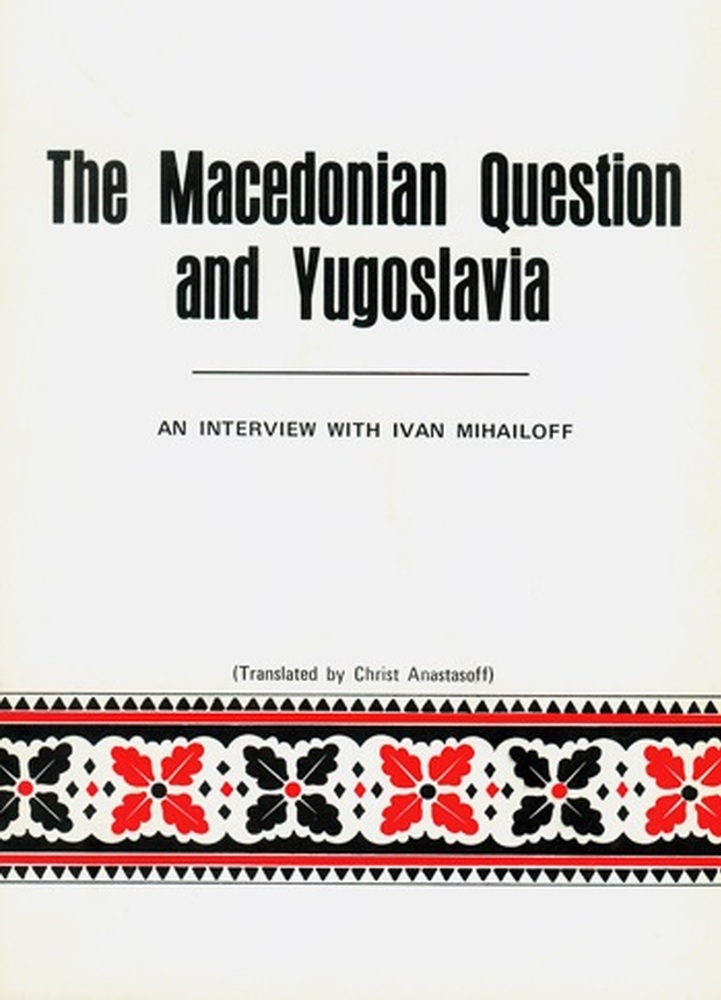site.btaAssociation of the Descendants of Refugees and Migrants from the Territory of the Republic of North Macedonia and friends: Open Letter to Viktor Orban


To Mr Viktor Orbán
Prime Minister of Hungary
Dear Mr Orbán,
Welcome to North Macedonia, where some of my ancestors come from.
Modern Europe for a long time did not understand the nature of the real problems in the young European state that emerged out of the Yugoslav communist legacy. This legacy is also painful to Bulgaria, because the former communist regime in Sofia did not allow any mention of Bulgarians in Macedonia, so as not to spoil the relations between the socialist countries.
I myself belonged to the Macedonian movement beginning in 1984 as a 17-year-old schoolboy, when I was arrested by the communist State Security only because I defended the rights of the Bulgarians of Macedonia and because of this activity the Yugoslav comrades "protested against me". I would like to stress that even then we believed that a Macedonian identity was being built in Yugoslavia and no one in Bulgaria has ever denied this fact. We only wanted to protect the human rights of those individuals who, despite constant repression and a daily anti-Bulgarian campaign, continued to preserve their Bulgarian identity.
To understand the essence of the problem, I will take the liberty to interpret an interview from 1970 by Ivan Mihayloff, the last leader of the authentic IMRO (Internal Macedonian Revolutionary Organization).
Let's take the Vojvodina region in Serbia as an example, which from the late Middle Ages was part of the Austro-Hungarian Empire and the territory of the Hungarian crown. In 1918 it was occupied by Serbia and the local Hungarian population was subjected to persecution.
Imagine, however, that in 1934 the Comintern came out with the position that there was a Vojvodinian nation. After 1945, this plan was set in motion and the native Hungarians were forbidden to express a Hungarian identity and it was forcibly replaced by a "Vojvodinian" one. On the basis of the local Hungarian dialect a new language called "Vojvodinian" began to be created and was imposed everywhere in public life. The Hungarian alphabet was replaced by Serbian. Gradually, Hungarian words began to fall out of use and were replaced by Serbian ones. All literature written in Hungarian literary language was banned and destroyed.
The entire Hungarian history of Vojvodina is completely falsified. In every history textbook, at every turn and on every occasion, by all the authorities, it is constantly pointed out that the history of Vojvodina is something separate and that it has nothing to do with the history of Hungary.
All the heroes in the Hungarian history of Vojvodina are called Vojvodinian, not Hungarian. The literature of all other neighbouring nations, except Hungarian, is taught in schools. Because the authorities fear that the youth will grasp how the poetry and prose of the literary language of Hungary is actually written in that language, which is the own language of the Vojvodinian Hungarians themselves. The youth would immediately realize that they are being denationalized.
A separate Vojvodinian church was established, along with a special propaganda that there was once an autocephalous Vojvodinian church, which was forcibly usurped by Hungary. In this way, the new government and through the church worked most vigorously to create a separate Vojvodinian nationality. The propaganda maintains that it is not a question of artificially creating a separate Vojvodinian nation, but only of re-establishing the Vojvodinian nationality, even though it never existed.
Vojvodina was proclaimed as an autonomous republic within Yugoslavia with the intention of fooling the outside world. Moreover, in newspapers, in schools, in special assemblies, it is always spoken against everything Hungarian in the worst terms, resorting to the most incredible fabrications.
On the one hand, the authorities exercise the aforementioned violence, and on the other hand, with various privileges, posts and money, they tirelessly try to attract various elements of the Hungarians in Vojvodina. All this is done in the name of the plan for the “resurrection” of the Vojvodina nation. Those native Hungarians who disagree with this policy are subjected to persecution and mass murder.
Now replace the historical name Vojvodina with the historical name Macedonia, replace the name Vojvodinian Hungarian with the name Macedonian Bulgarian. You will have in front of you the picture of the true situation that was created in the land of some of my ancestors after communism rose to power in Yugoslavia.
Now it is right to ask: would there be a single Hungarian who would approve of such a plan for Vojvodina as is briefly outlined here? Is it not normal for every Bulgarian to fight by democratic means against such a situation existing in present-day North Macedonia?
Against the background of all this, in the last few years Hungary has purchased media outlets in North Macedonia. These media outlets are constantly spreading falsifications of objective facts and delivering modern anti-Bulgarian messages. How would Hungary react if Bulgaria controlled media in Vojvodina in Vojvodinian language and all publications constantly attacked Budapest? Do you think that such a policy would bring stability to the region around Hungary, Vojvodina and Serbia?
To ascertain the veracity of what I have written, you can check the oldest extant Hungarian historical sources that speak of the ancient connections between Hungarians and Bulgarians, for example the chronicles of Anonim and Turoci or the publications of a number of eminent Hungarian scientists from the nineteenth to the mid-twentieth century.
I should point out here that even some Hungarian Jews like Boleslav Tachauer were in very close contact with the authentic IMRO. In the 1950s he reestablished his contacts with the Macedonian liberation movement and followed the political processes in Yugoslavia, as a result of which he published his analysis of the Macedonian Question in Rio de Janeiro in 1966. It examines not only its emergence in the past, but also its contemporary dimensions. About Tito's Yugoslavia he writes: „As for the Serbs, because they could not, nor can they, destroy the whole Bulgarian population in Macedonia, and because they cannot expel it en masse, they systematically continue the work of denationalization. The population is dissatisfied with the regime imposed on it in the so-called Macedonian Republic in Yugoslavia“. In the same publication, Tchauer makes an appeal to the Euro-Atlantic factors: „It is high time that Europe and America realize that there are huge injustices against small nations that are crying out for relief in the most humane way possible. The removal of this injustice would be the greatest achievement and would serve the peaceful development of our continent“.
And in 1967, former Hungarian Finance Minister Nicholas Nyaradi delivered an important speech to the 46th Annual Congress of Macedonian Patriotic Organizations in the United States and Canada. In it he said: „Can anyone tell us when the UN sent a commission to a communist country? Did they send such a commission to review the prisons in Yugoslavia? And with thousands of innocents rotting and still rotting in communist prisons. If the UN has a responsibility for the prisoners in South Africa, doesn't that responsibility extend to the prisoners in Yugoslavia“?
This is what we keep asking for - an independent European mission to visit North Macedonia, meet with repressed Macedonian Bulgarians and ultimately defend their human rights.
A claim by the authorities in Skopje that Bulgaria denied the modern Macedonian identity is a slander, which misleads the North Macedonian and European public that someone else is to blame for the failure of European integration. In fact, current politicians in North Macedonia are not interested in EU membership, but in the so-called 'Open Balkans', better known as “Serbian world”.
We want our brothers and sisters in North Macedonia to become part of the EU. We therefore appeal to you to help Skopje democratize and fulfil the commitments it has made to the entire EU so it can start successfully on the path of European integration.
Respectfully yours:
Assoc. Prof. Dr. Spas Tashev
Co-President of the Association of the Descendants of the Refugees and Resettlers from North Macedonia and Friends
news.modal.header
news.modal.text